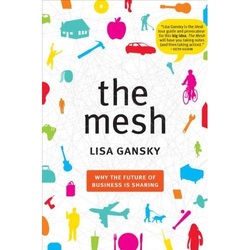|
Speak through your work
Understand: your work is the single greatest means at your disposal for expressing your social intelligence. By being efficient and detail oriented in what you do, you demonstrate that you are thinking of the group at large and advancing its cause. By making what you write or present clear and easy to follow, you show your care for the audience or public at large. By involving other people in your projects and gracefully accepting their feedback, you reveal your comfort with the group dynamic. Work that is solid also protects you from the political conniving and malevolence of others—it is hard to argue with the results you produce. If you are experiencing the pressures of political maneuvering within the group, do not lose your head and become consumed with all of the pettiness. By remaining focused and speaking socially through your work, you will both continue to raise your skill level and stand out among all the others who make a lot of noise but produce nothing. Mastery by Robert Greene The Lean Startup asks people to start measuring their productivity differently.
The goal of a startup is to figure out the right thing to build—the thing customers want and will pay for—as quickly as possible. In other words, the Lean Startup is a new way of looking at the development of innovative new products that emphasizes fast iteration and customer insight, a huge vision, and great ambition, all at the same time. The first feedback loop in startups is like that in a car's engine and I call it the engine of growth. Every new version of a product, every new feature, and every new marketing program is an attempt to improve this engine of growth. New product development happens in fits and starts. Much of the time in a startup’s life is spent tuning the engine by making improvements in product, marketing, or operations. The second important feedback loop is similar to what is in an automobile and is between the driver and the steering wheel. This feedback is so immediate and automatic that we often don’t think about it., The choreography of driving is incredibly complex when one slows down to think about it. By contrast, a rocket ship requires just this kind of in-advance calibration. It must be launched with the most precise instructions on what to do: every thrust, every firing of a booster, and every change in direction. The tiniest error at the point of launch could yield catastrophic results thousands of miles later. Unfortunately, too many startup business plans look more like they are planning to launch a rocket ship than drive a car. They prescribe the steps to take and the results to expect in excruciating detail, and as in planning to launch a rocket, they are set up in such a way that even tiny errors in assumptions can lead to catastrophic outcomes. The Lean Startup method, in contrast, is designed to teach you how to drive a startup. Instead of making complex plans that are based on a lot of assumptions, you can make constant adjustments with a steering wheel called the Build-Measure-Learn feedback loop. Through this process of steering, we can learn when and if it’s time to make a sharp turn called a pivot or whether we should persevere along our current path. Once we have an engine that’s revved up, the Lean Startup offers methods to scale and grow the business with maximum acceleration. Startups also have a true north, a destination in mind: creating a thriving and world-changing business. I call that a startup’s vision. To achieve that vision, startups employ a strategy, which includes a business model, a product road map, a point of view about partners and competitors, and ideas about who the customer will be. The product is the end result of this strategy. The Lean Startup: How Today's Entrepreneurs Use Continuous Innovation to Create Radically Successful Businesses by Eric Ries When things are great, get as much as you can out of it.
This always seems like it'll last forever while it's happening, but it never does. Double down, triple down. If business is ridiculously good lately, pour the time in to max out the current opportunities before they (likely) fade away. Bank cash, etc. The same goes for creativity. When you're having a highly creative day, run it out as much as you can. Resist the temptation to say, "Well, that's enough" and just go chill out or whatever. Max inspired time is rare. Milk that cow when you're max inspired. During bad times, re-double on fundamentals and try to avoid doing anything stupid. Fundamentals keeps you from hitting the vicious downward spiral. Super basic stuff. Decent sleep schedule, eat well, drink enough water, time in nature, time socializing with people you like. If things start getting hairy, really knuckle down on the most very basic stuff. That helps fight off the downward spiral. And then try not to do anything stupid. Don't spend a lot of money or make irreversible decisions if your judgment is faulty. Just keep gearing down on fundamentals. When you're low creatively, this is a great time to do tedious consolidation. Clean the kitchen, clean all your gear up, clean up the files on your computer, get taxes and licenses or whatever filed and renewed, deal with bureaucracy and nonsense—this will free up your time to milk the cow more when you're max creative. Okay, this is my new plan. Normal life during normal times. Milk the cow as much as possible when things are unusually great. Fundamentals and trying to avoid being stupid when things are bad. If you do those seven things—eat well, drink water, sleep on schedule, plan tomorrow before sleeping, start on what's most important, exercise, fully relax regularly, and get some time in nature—that almost guarantees busting out of a slump. If you're in a slump, you're almost certainly not doing one of those. Ikigai by Sebastian Marshall I am running around Las Vegas this week and saw these statues, and had to take a picture.
2012 was a good year, and I have a lot going on, so I really think I need to stay focused and continue to improve. The year being good made me think of this quote, which basically says it all, that it is just when all is good and everything is going the right way that you need to double up on the discipline and focus. If things keep going well, you will continue to improve and if they suddenly go differently than planned, you are already in motion and not just coasting. "After victory, tighten the straps on your helmet." -- Tokugawa Ieyasu The Third and Final "Great Unifier" of Japan, Founder of the Tokugawa Shogunate That Ruled Japan For 250 Years I like these rules of thumb from Never Eat Alone. Important to remember you are not building a network, you are making friends. D
1. Don’t schmooze. Have something to say, and say it with passion. Make sure you have something to offer when you speak, and offer it with sincerity. Most people haven’t figured out that it’s better to spend more time with fewer people at a one-hour get-together, and have one or two meaningful dialogues, than engage in the wandering-eye routine and lose the respect of most of the people you meet. 2. Don’t rely on the currency of gossip. Of course, using gossip is easier. Most people lap up such information. But it won’t do you any good in the long run. Eventually the information well will run dry as more and more people realize you’re not to be trusted. 3. Don’t come to the party empty-handed. Who are the stars of today’s Internet world? Bloggers. Those freewheeling cybernauts who set up sites and online journals to provide information, links, or just empathy to a community of like-minded individuals. They do it for free, and they’re often rewarded with a devout following of people who, in return, offer as much as they receive. 4. Don’t treat those under you poorly. Soon enough, some of them will become “overlings.” In business, the food chain is transient. 5. Be transparent. “I am what I am,” the cartoon character Popeye used to say. In the information age, openness—whether it concerns your intentions, the information you provide, or even your admiration—has become a valuable and much-sought-after attribute. People respond with trust when they know you’re dealing straight with them. 6. Don’t be too efficient. Nothing comes off as less sincere than receiving a mass e-mail addressed to a long list of recipients. Reaching out to others is not a numbers game. Your goal is to make genuine connections with people you can count on. All of which reveals an inner truth about the skill of reaching out to others: Those who are best at it don’t network—they make friends. They gain admirers and win trust precisely because their amicable overtures extend to everyone. A widening circle of influence is an unintended result, not a calculated aim. Never Eat Alone: And Other Secrets to Success, One Relationship at a Time by Keith Ferrazzi, Tahl Raz A huge body of research has shown that small wins have enormous power, an influence disproportionate to the accomplishments of the victories themselves. “Small wins are a steady application of a small advantage,” one Cornell professor wrote in 1984. “Once a small win has been accomplished, forces are set in motion that favor another small win.” Small wins fuel transformative changes by leveraging tiny advantages into patterns that convince people that bigger achievements are within reach.
“Small wins do not combine in a neat, linear, serial form, with each step being a demonstrable step closer to some predetermined goal,” wrote Karl Weick, a prominent organizational psychologist. “More common is the circumstance where small wins are scattered … like miniature experiments that test implicit theories about resistance and opportunity and uncover both resources and barriers that were invisible before the situation was stirred up.” The Power of Habit: Why We Do What We Do in Life and Business by Charles Duhigg These gentlemen are much smarter than I am, and certainly far more successful than I am, so perhaps my opinion matters a little less to you, but I am concerned that they are pushing a message that is wildly popular now, and it is one that is being misunderstood and I believe is dangerous to the individual and also our future.
Their simple message is, "it makes no sense to go to college, and instead you should just start a business." This is simply wrong. Their intentions are good, and I understand what they are trying to do, but I believe their message is at best, being misunderstood, or maybe it just isn't valid. This viewpoint on college will not make the world a better place nor will it make a person's life as rich as it could be if they follow that advice. Also each one of these men graduated college. We tend to undervalue what we have, and each of these men have a college education, and they are not thinking that each step they took built the path that lead them to make themselves succeed. Each of these men use the tools they learned in college, and probably they still know and work with some of the people they met there. Today, we do not need more people selling ebooks. That will not build growth or opportunity. The Internet is full of opportunity, and squandering it by promoting the latest lifestyle guide just isn't going to do it. You have to build something, you need to create. We do not need to reinvent the wheel each day. We all stand on the work and thoughts of the people born before us. To know those ideas, you need to learn them. I have made a career out of applying history to today's problems, because whatever problem you have, someone has had it before. Find out how they solved it. We need more people creating value and less people consuming mindlessly. The engine that drives the future and the economy is creativity and imagination, smart people taking risks. The elite group above are all stating that today you shouldn't even consider college but I believe that message serves no value. If you do not have a better opportunity, you should go to college, and stay in college until you find a better way to leverage your skills and learn. We don't need more ebook marketers. We need people to solve the world's problems and make this a better world. You are bigger than that and I think some balance in your life is important. I am sure they do not mean it this way, these are very smart men who have shown that they are curious and love to learn, but the message generally being copied and reported over and over on the internet, through blog posts and twitter, is that it is smart to reject education and start a business. The real goal is to get as much education as possible, to reject debt and to remember to always go with the best opportunity at hand that has the best opportunity cost for you. Here is why you should consider going to college. 1. The issue isn't that education is bad, or that you shouldn't go to college, it is that you shouldn't go into debt to get it. You should learn as much as you can, from anywhere you can. If you didn't know what you wanted to do, and I said I know a place where you can try many different disciplines and things and experiences, where you can meet people from all over the world, would you go? 2. Right now in all the other countries of the world, people in those other countries are getting as much education as they can. You are competing in a global market, and there are Phd's in India ready to do anything to succeed. Ignorance is not a competitive tool. Get as much education as you can afford. Always keep learning. Learn new skills constantly. Competition in China is brutal, and today we are in the same global market as they are. Are we ready to hustle as much as they are? 3. Take the "college is bad" thought to its extreme. Is the United State's biggest problem today is that we are too educated? No. We certainly do not suffer from over education. If anything, we need more education. Knowledgable people would not have thought that when the housing market was hot, that every house everywhere, was worth a fortune. They would know history and know about the tulip boom and bust. We need more knowledge not less. The biggest problem today is that we need better education regarding debt, something education can fix. You go in to debt because you are uneducated. I know this very well, as this is a lesson I learned the hard way. 4. If you don't know what you want to do, going to school is a great place to see the options and meet people. Don't quit school until you have better options. It is all about opportunity costs. 5. Most entrepreneurs went to school, maybe didn't finish, but went to school, including those in the subject line. They found the resources or met the people who would help them succeed at school. 6. Business is an art. Just like a writer, or film maker, and if you have nothing to say, you can have all the skills and talent in the world but in the end you say or accomplish nothing. Life is an art, and if you have a passion, a belief, and you are a well rounded person, you will always be more adaptable than some single minded individual. Survival is about adaption. 7. The world is more than just business. Business brings opportunity, but the world also has art, philosophy, and science. The more of the world you know, the better you will be at what you do. Going to school opens up doors that you don't know exist today, that you don't even think to look for, that you don't even know you want, until it is there. 8. View schools like stocks, look at the ROI on what you estimate that you think it will return. If you want to be a teacher, and start at $40,000 don't spend $200,000 going to Stanford, pay $20,000 at a smaller school, who will probably get you a more personalized education and help ou pay for it. Pick stocks that matter to you and will make you and your life better. Pick a school or program that makes your life better and gives you a good return on your money. 9. Colleges, all schools for that matter, allow the young in rural areas to see thoughts and ideas and other people that starting a business in their area wold never get them. The world is not all urban centers, most of the United States is not, and colleges allow young people a first glimpse of a world that is bigger than just Chickasha, Oklahoma. 10. You need to be careful about insulating yourself. In a world where you pick your reading, from your twitter feed, to Facebook, you pick what you search in Google which edits results based on what you previously liked, it is important to get information and other viewpoints you did not select. Most successful business people I know always have one advisor that is the opposite of them, to give them a viewpoint that counters their own. 11. The educational process needs to be improved, not ignored or rejected. Where there is a need to improve, there is business opportunity, and to find that opportunity, you need to know what needs to be changed, and how better than seeing first hand what needs to be changed. Get in it, see what needs to change, and then start your business to fix it. Each one of these men graduated college. So did I. D The Mesh - by Lisa Gansky ( Notes Part 1)
Characteristics of a mesh business; 1. the core offering is something that can be shared, within a community, market, or value chain. 2. Advanced web and mobile data networks are used to track goods and aggregate usage, customer, and product information. 3. The focus is on shareable physical goods, including materials used, which makes local delivery of services and products, and their money, valuable and relevant. 4. Offers, news, and recommendations are transmitted largely through word of mouth, and augmented by social services networks. A mesh describes a type of network that allows any node to link in any direction with any other nodes in the system. Every part is connected to every other part, and they move in tandem. Mesh businesses profit by streamlining access to physical goods and services. They are easy to start. They leverage available information infrastructure, they employ horizontal business to business services ( Fed Ex, Paypal). Mesh businesses all rely on the basic premise that when information about goods is shared, the value of the goods increases, for the business, for the individual, and for the community. Mesh businesses are well positioned to constantly improve their customers experience by refining the overall experience and give long term savings - think items seldom used, high priced, high insurance ( cars, RV's, tools) learn - test - play - engage - repeat produce beta editions and modify in response The challenge is to leverage an infrastructure for real time personalization Mesh businesses are taking what we have learned collectively about what works in the web businesses and they are applying it to the sharing of physical products. Mesh requires durable, flexible, reparable, and sustainable. The era of disposal products is gone. Things need to be built to last, the goal is to create products and then spread the cost of the life of them over several transactions and over many people. The mesh encourages open and agreed upon design standards. |
Click to set custom HTML
Categories
All
Disclosure of Material Connection:
Some of the links in the post above are “affiliate links.” This means if you click on the link and purchase the item, I will receive an affiliate commission. Regardless, I only recommend products or services I use personally and believe will add value to my readers. I am disclosing this in accordance with the Federal Trade Commission’s 16 CFR, Part 255: “Guides Concerning the Use of Endorsements and Testimonials in Advertising.” |
Photos from Wesley Oostvogels, Thomas Leuthard, swanksalot, Robert Scoble, Lord Jim, Pink Sherbet Photography, jonrawlinson, MonsterVinVin, M. Pratter, greybeard39, Stepan Mazurov, deanmeyersnet, Patrick Hoesly, Lord Jim, Dcysiv Moment, fdecomite, h.koppdelaney, Abode of Chaos, pasa47, gagilas, BAMCorp, cmjcool, Abode of Chaos, faith goble, nerdcoregirl, Adrian Fallace Design & Photography, jmussuto, Easternblot, Jeanne Menjoulet & Cie, aguscr, h.koppdelaney, Saad Faruque, ups2006, Unai_Guerra, erokism, MsSaraKelly, Jem Yoshioka, tony.cairns, david drexler, Reckless Dream Photography, Raffaele1950, kevin dooley, weegeebored, Cast a Line, Zach Dischner, Eddi van W., kmardahl, faungg's photo, Alan Light, acme, Evan Courtney, specialoperations, Mustafa Khayat, darkday., Orin Zebest, Robert S. Donovan, disparkys, kennethkonica, aubergene, Nina Matthews Photography, infomatique, Patrick Hoesly, j0sh (www.pixael.com), SmithGreg, brewbooks, tjsander, The photographer known as Obi, Simone Ramella, striatic, jmussuto, m.a.r.c., jfinnirwin, Nina J. G., pellesten, dreamsjung, misselejane, Design&Joy, eeskaatt, Bravo_Zulu_, No To the Bike Parking Tax, Kecko, quinn.anya, pedrosimoes7, tanakawho, visualpanic, Brooke Hoyer, Barnaby, Fountain_Head, tripandtravelblog, geishaboy500, gordontarpley, Rising Damp, Marc Aubin2009, belboo, torbakhopper, JarleR, aakanayev, santiago nicolau, Official U.S. Navy Imagery, chinnian, GS+, andreasivarsson, paulswansen, victoriapeckham, Thomas8047, timsamoff, ConvenienceStoreGourmet, Jrwooley6, DeeAshley, ethermoon, torbakhopper, Mark Ramsay, dustin larimer, shannonkringen, Stf.O, Todd Huffman, B Rosen, Lord Jim, Jolene4ever, Ben K Adams, Clearly Ambiguous, Daniele Zedda, Ryan Vaarsi, MsSaraKelly, icebrkr, jauhari, ajeofj3, jenny downing, Joi, GollyGforce, Andrew from Sydney, Lord Jim, 'Retard' (says University of Missouri), drukelly, Sullivan Ng, jdxyw, infomatique, AlicePopkorn, RAA408, Abode of Chaos, SaMaNTHa NiGhTsKy, as always..., D@LY3D, Angelo González, the sugary smell of springtime!, Marko Milošević, pedrosimoes7, MartialArtsNomad.com, 401(K) 2013, Sigfrid Lundberg, MoneyBlogNewz, NBphotostream, the stag and doe, Jemima G, bablu121, .reid., jared, EastsideRJ, Alex Alvisi, Marie A.-C., geishaboy500, modomatic, starsnostars., Hardleers, Sarah G..., donielle, Danny PiG, bigcityal, || UggBoy♥UggGirl || PHOTO || WORLD || TRAVEL ||, -KOOPS-, seafaringwoman, kingkongirl, Richard Masoner / Cyclelicious, Hans Gotun, gruntzooki, Duru..., Vectorportal, Peter Hellberg, Alexandre Hamada Possi, Santi Siri, Joshua Rappeneker, a little tune, Patricia Mangual, erokism, woodleywonderworks, Philippe Put, Purple Sherbet Photography, Abode of Chaos, greybeard39, swanksalot, greyloch, Omarukai, Marc_Smith, SLPTWRK, Peter Alfred Hess, illum, MarioMancuso, willc2, _titi, Lightsurgery, Rennett Stowe, feverblue, Esteman., Keith Allison, DCist, h.koppdelaney, Mike Deal aka ZoneDancer, Jos Dielis, The Wandering Angel, Nathaniel KS, MsSaraKelly, Frank Lindecke, Kara Allyson, JeremyGeorge, deoman56, gagilas, Xoan Baltar, Luke Lawreszuk, Eric-P, fdecomite, lorenkerns, masochismtango, Adrian Fallace Design & Photography, anarchosyn, -= Bruce Berrien =-, radiant guy, Free Grunge Textures - www.freestock.ca, El Bibliomata, antmoose, Pedro Belleza, Fitsum Belay/iLLIMETER, Nathan O'Nions, denise carbonell, swanksalot, ▓▒░ TORLEY ░▒▓, Marco Gomes, Justin Ornellas, jenni from the block, René Pütsch, eddieq, thombo2, Ben Mortimer Photography, :moolah, ideowl, joaquinuy, wiredforlego, Rafa G. _, derrickcollins, Fishyone1, ben pollard, Admiralspalast Berlin, Georgio, garybirnie.co.uk, fiskfisk, MoreFunkThanYou, xJason.Rogersx, kevin dooley, David Holmes2, Kris Krug, JD Hancock, Images_of_Money, andriux-uk events, Tyfferz, decafinata, jonrawlinson, isado, Lohan Gunaweera, Derek Mindler, Mike "Dakinewavamon" Kline, themostinept, kiwanja, erokism, dktrpepr, Keoni Cabral, denise carbonell, Neal., tonystl, ericmay, Ally Mauro, erokism, Georgie Pauwels, anitakhart, Ivan Zuber, r2hox, Aka Hige, badjonni, striatic, Arry_B, 401(K) 2012, pvera, Lord Jim, Dredrk aka Mr Sky, TerryJohnston, eschipul, wiredforlego, Yuliya Libkina, fabbio, Justin Ruckman, David Boyle, Matthew Oliphant, Keoni Cabral, Thaddeus Maximus, Abode of Chaos, matthias hämmerly, dospaz, LadyDragonflyCC - >;<, CassiusCassini2011, Abode of Chaos, Jorge Luis Perez, infomatique, Mark Gstohl, AliceNWondrlnd, ç嬥x, ssoosay, striatic, NASA Goddard Photo and Video, feverblue, MsSaraKelly, kohlmann.sascha, Vox Efx, country_boy_shane, paularps, Gage Skidmore, HawkinsSteven, Cam Switzer, Arenamontanus, anieto2k, Georgie Pauwels, my camera and me, Lord Jim, nolifebeforecoffee, Joris_Louwes, Kemm 2, VinothChandar, DeeAshley, brewbooks, craigemorsels, Boris Thaser, Poster Boy NYC, ssoosay, guzzphoto, sachac, chefranden, Wanja Photo, Samuel Petersson, onlyart, samsaundersleeds, Ghita Katz Olsen, mcveja, matthewwu88, Victor Bezrukov, JasonLangheine, erokism, vitroid, thethreesisters, charlywkarl, Sharon & Nikki McCutcheon, Ol.v!er [H2vPk], mikecogh, tec_estromberg, noii's, nicholaspaulsmith, Tucker Sherman, Phil Grondin, Cea., Randomthoughtstome, dcobbinau, rafeejewell, pedrosimoes7, lumaxart, marfis75, roland, RLHyde, David Boyle in DC, Sigfrid Lundberg, Thomas Geiregger, Uberto, bgottsab, Conor Lawless, phphoto2010, Steven | Alan, ckaroli, dweekly, AleBonvini, 드림포유, die.tine, MsSaraKelly, equinoxefr, Sarabbit, Abode of Chaos, Galantucci Alessandro, LadyDragonflyCC - >;< - Spring in Michigan!, Alan Gee, Johan Larsson, SoulRider.222, Robert S. Donovan, amslerPIX, cfaobam, Amy L. Riddle, Bladeflyer, Blomstrom, pumpkincat210, Lord Jim, Symic, kevin dooley, pixelthing, Nelson Minar, Fraser Mummery, The Booklight, edenpictures, everyone's idle, betsyweber, h.koppdelaney, ark, Ben Fredericson (xjrlokix), dphiffer, Jeff Kubina, istolethetv, dullhunk, Tambako the Jaguar, fdecomite, The Daily Ornellas, Badruddeen, kevindooley, mnem, Reyes, sadaton, Mary..K, akunamatata, Dennis Vu Photography for Unleashed Media, mitch98000, ganesha.isis, maria j. luque, doneastwest, w00tdew00t, kevindooley, NightFall404, Infrogmation, nandadevieast, darkpatator, Christos Tsoumplekas, sicamp, Hello Turkey Toe, cliff1066™, James Jordan, gailf548, andrew_byrne, infomatique, graphia, -= Bruce Berrien =-, aphrodite-in-nyc, jmussuto, eiko_eiko, Emily Jane Morgan, _Imaji_, kait jarbeau is in love with you, Leeks, h.koppdelaney, paul-simpson.org, Pinti 1, Namlhots, -KOOPS-









 RSS Feed
RSS Feed

